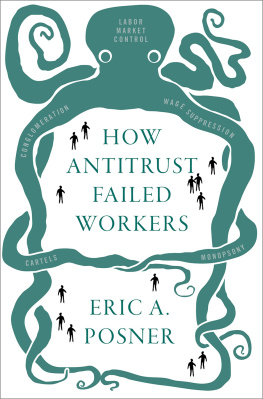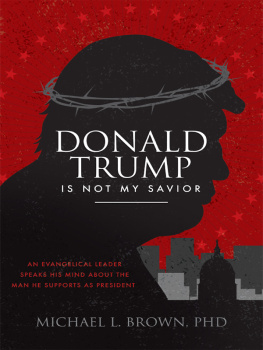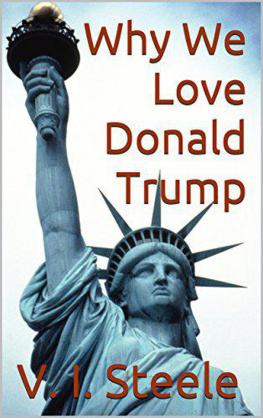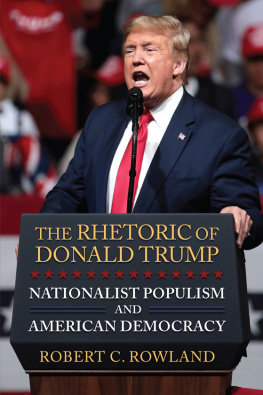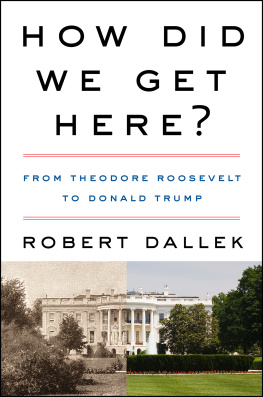Eric A. Posner - The Demagogues Playbook: The Battle for American Democracy from the Founders to Trump
Here you can read online Eric A. Posner - The Demagogues Playbook: The Battle for American Democracy from the Founders to Trump full text of the book (entire story) in english for free. Download pdf and epub, get meaning, cover and reviews about this ebook. year: 2020, publisher: St. Martins Publishing Group, genre: Science / Politics. Description of the work, (preface) as well as reviews are available. Best literature library LitArk.com created for fans of good reading and offers a wide selection of genres:
Romance novel
Science fiction
Adventure
Detective
Science
History
Home and family
Prose
Art
Politics
Computer
Non-fiction
Religion
Business
Children
Humor
Choose a favorite category and find really read worthwhile books. Enjoy immersion in the world of imagination, feel the emotions of the characters or learn something new for yourself, make an fascinating discovery.

- Book:The Demagogues Playbook: The Battle for American Democracy from the Founders to Trump
- Author:
- Publisher:St. Martins Publishing Group
- Genre:
- Year:2020
- Rating:3 / 5
- Favourites:Add to favourites
- Your mark:
The Demagogues Playbook: The Battle for American Democracy from the Founders to Trump: summary, description and annotation
We offer to read an annotation, description, summary or preface (depends on what the author of the book "The Demagogues Playbook: The Battle for American Democracy from the Founders to Trump" wrote himself). If you haven't found the necessary information about the book — write in the comments, we will try to find it.
As President, Donald Trump has made a habit of undermining democratic institutions. He constantly attacks the free press as fake news. He questions the legitimacy of his own intelligence agencies when they contradict his own public statements. Despite numerous reports of foreign interference in U.S. elections, his own government refuses to take any action. And his rhetoric, replete with insults and falsehoods, serves to excite a particular segment of the electorate while alienating others. While his adversaries find his administration appalling, those who support him argue he is doing exactly what they elected him to do: Bully our enemies and return America to some mythical great past. From distancing ourselves from international trade agreements to inviting family members to the inner sanctum of White House decision making to sticking tariffs on any country unwilling to concede to Trumps demands, the President is an example of a paradox: Someone unwilling to operate under the guidelines of democratic norms while remaining popular among his base. Is this the new normal?
As Eric Posner provocatively explores in The Demagogues Playbook, Trump falls within a tradition of American political leaders and personalities who have used the language of exploitation and grievance to amass power. And, in many cases, were quite popular in their time. From Andrew Jackson to Father Charlies Coughlin, the viscously anti-semetic radio personality of the early 20th century, these demagogues attacked what they perceived as enemies of the people: the elites, the journalists, the policy-makers, and the institutional norms of our republican system. On the surface, this defense of the common people feels oddly noble. But, as Posner shows, this defense is an emperor with no clothes. Rather than protect, the demagogue uses everyday people--and invents their enemies--to undermine, ultimately, their self-interest.
Posner exposes how we must move past the demagogues rhetoric and protect the features of a democracy that help it thrive: a free press, a group of experts who oversee the various agencies tasked with improving American lives, and the checks and balances that pose restrictions on public office. Only under such norms can a democracy survive. In short, can a democracy thrive under a demagogue? Posner finds no reason to believe so, and if we refuse to understand why, Trump may be the first of several future demagogues elected President.
Eric A. Posner: author's other books
Who wrote The Demagogues Playbook: The Battle for American Democracy from the Founders to Trump? Find out the surname, the name of the author of the book and a list of all author's works by series.

